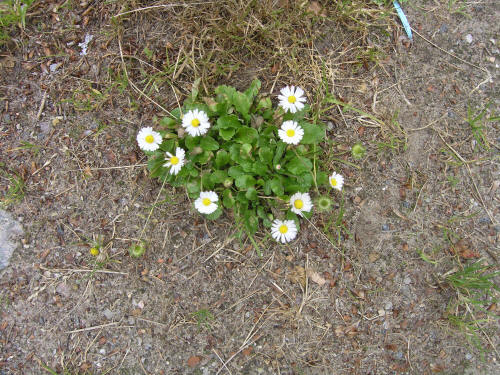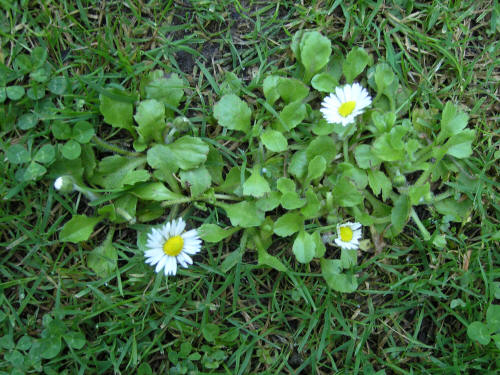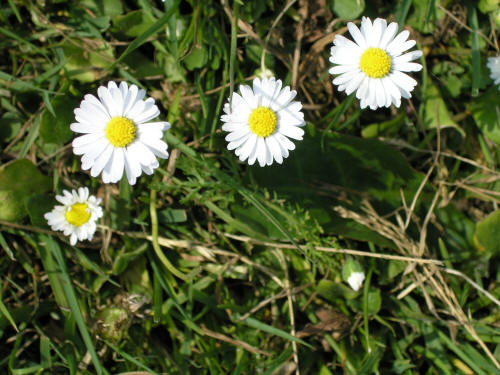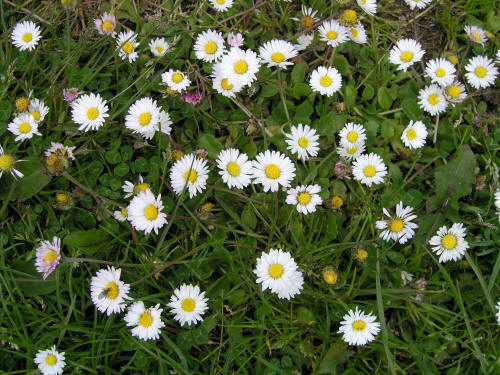English Daisy
English Daisy
Bellis perennis L.
Asteraceae (Sunflower Family)

▲ ▼ mature, flowering plants
▲ ▼ mature, flowering plants


▲ ▼ flowers

Bellis perennis L., English Daisy: (Bayer Code: BELPE; US Code BEPE2)
- Simple perennial with compressed stems and oval, hairy leaves, native to Europe in the Sunflower/Aster Family (Asteraceae)
- Leaves stay in rosette formation, with oval leaf blades with smooth or scalloped margins; leaf blades taper down at base to join stem
- Produces head-type, daisy-like flowers atop a short to elongated, naked flower stem
- Flowers usually have a flattened center of yellow disk of disk flowers, surrounded by numerous slender ray flowers (typical daisy appearance) that are usually white, but may be pink or red; flowers 0.5-1.5 inches diameter
- Prefers moist, fertile, cool, soils; tolerates moderate shade in southern areas
- Flowers can form under normal lawn-mowing height
- Reproduces by offsets from parent plant and by seed
- Similar weeds with white daisy flowers with yellow centers:
- Oxeye daisy (Leucanthemum vulgare) has taller stems with leaves on them and more common on drier soils in full-sun locations
- Mayweed chamomile (Anthemis cotula) has flowers at tips of leafy stems, and leaves are very finely-divided and have a strong, bad odor
- False chamomile (Tripleurosperma maritima) also has flowers at tips of leafy stems with finely-divided leaves, but plants have little to no odor
- More common in Northeast and Northwestern U.S., but can be found in old landscapes, shaded sites in Missouri
(Updated January 19, 2019)